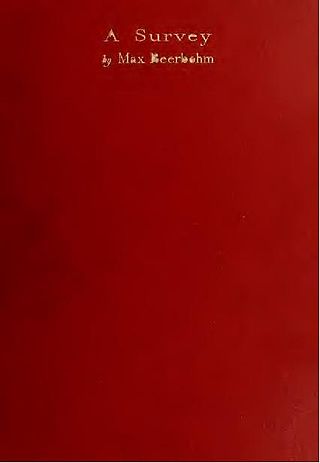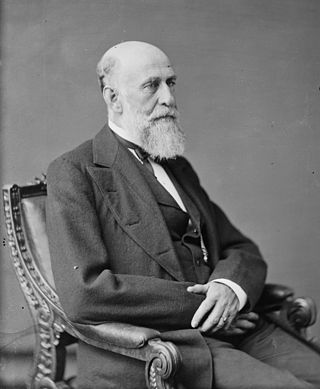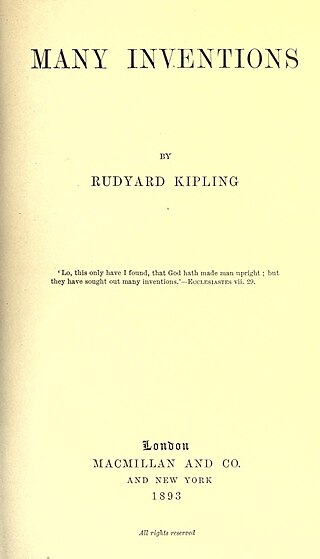
Joseph Rudyard Kipling was an English journalist, novelist, poet, and short-story writer. He was born in British India, which inspired much of his work.
This is a bibliography of works by Rudyard Kipling, including books, short stories, poems, and collections of his works.

Sir Edmund William Gosse was an English poet, author and critic. He was strictly brought up in a small Protestant sect, the Plymouth Brethren, but broke away sharply from that faith. His account of his childhood in the book Father and Son has been described as the first psychological biography.

Pierre Loti was a French naval officer and novelist, known for his exotic novels and short stories.

Perceval Landon (1869–1927) was an English writer, traveller and journalist, now best remembered for his classic and much reprinted ghost story "Thurnley Abbey".

William Henry Heinemann was an English publisher of Jewish descent and the founder of the Heinemann publishing house in London.

William Heinemann Ltd., with the imprint Heinemann, was a London-based publisher founded in 1890 by William Heinemann. Their first published book, 1890's The Bondman, was a huge success in the United Kingdom and launched the company. He was joined in 1893 by Sydney Pawling. Heinemann died in 1920 and Pawling sold the company to Doubleday, having worked with them in the past to publish their works in the United States. Pawling died in 1922 and new management took over. Doubleday sold his interest in 1933.
Arthur Waugh was an English author, literary critic and publisher. He was the father of the authors Alec Waugh and Evelyn Waugh.

Naulakha, also known as the Rudyard Kipling House, is a historic Shingle Style house on Kipling Road in Dummerston, Vermont, a few miles outside Brattleboro. The house was designated a National Historic Landmark in 1993 for its association with the author Rudyard Kipling (1865–1936), who had it built in 1893 and made it his home until 1896. It is in this house that Kipling wrote Captains Courageous, The Jungle Book, The Day's Work, and The Seven Seas, and did work on Kim and The Just So Stories. Kipling named the house after the Naulakha Pavilion, situated inside Lahore Fort in present-day Pakistan. The house is now owned by the Landmark Trust, and is available for rent.
The Indian Railway Library was an enterprise conducted in Allahabad from 1888. It was a publishing venture of A. H. Wheeler & Co., who "had the monopoly on bookstall sales on Indian railway stations" It was a series of pamphlets intended to catch the interest of railway passengers, and offer cheap "throwaway" reading material.

A Christmas Garland, Woven by Max Beerbohm is a collection of seventeen parodies written by English caricaturist, essayist and parodist Max Beerbohm. It was first published in the United Kingdom in October 1912 by Heinemann and in 1913 in the United States by Dutton & Co. of New York.

A Survey is a book of fifty-two caricatures and humorous illustrations by British essayist, caricaturist and parodist Max Beerbohm. It was published in Britain in 1921 by William Heinemann and in the United States in the same year by Doubleday, Page & Company of New York City.

Walter Herries Pollock was an English writer, poet, lecturer and journalist. He is best known as editor of the Saturday Review, a position he held from 1884 to 1894, but also had published various miscellaneous writings that included novels, short stories, plays, poetry and translated works between 1877 and 1920. He was also, at one time, considered one of the best amateur fencers in Great Britain.

The Naulakha Pavilion is a white marble personal chamber with a curvilinear roof, located beside the Sheesh Mahal courtyard, in the northern section of the Lahore Fort in Lahore, Pakistan. The monument is one of the 21 monuments situated within the Lahore Fort, with its western façade providing a panoramic view of the ancient city of Lahore.

George Franklin Edmunds was an American attorney and Republican politician who represented the state of Vermont in the United States Senate from 1866 to 1891. He was a candidate for the Republican presidential nomination in 1880 and 1884 as a leading representative of New England and of the faction favoring civil service reform.
This is a list of the works of Henry James, an American writer who spent the bulk of his career in Britain.

Many Inventions is an 1893 collection of short stories by Rudyard Kipling. 11 of the 14 stories appeared previously in various publications, including The Atlantic Monthly and The Strand Magazine. Eight of the stories were written in England, while the other six were written in Vermont after Kipling had married and settled with Caroline Balestier.

The Naulahka: A Story of West and East is an 1892 novel by Rudyard Kipling in collaboration with Wolcott Balestier, which was originally serialized in The Century Magazine from November 1891 to July 1892. The book is set in the fictional state of "Rahore", believed to be based on Rajputana. It was not well-received, either commercially or critically in Kipling's time.

Caroline Starr Balestier Kipling, also known as Carrie, was the American-born wife of Rudyard Kipling and the custodian of his literary legacy after his death in 1936.















